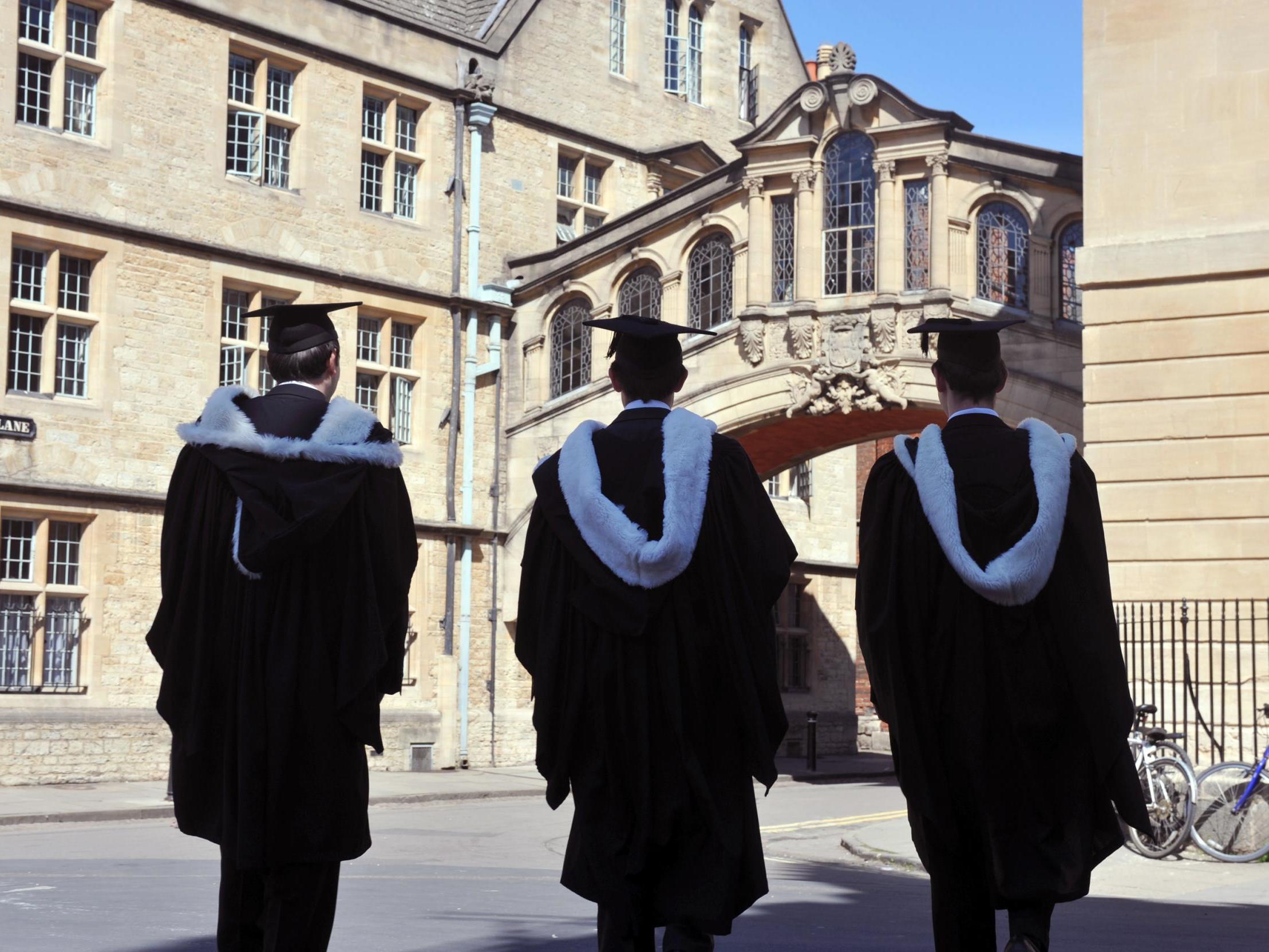How ‘soft bigotry’ of teachers’ low expectations is stopping poor pupils going to university
A report warns that quality advice in schools on academic routes is ‘desperately scarce’, writes Eleanor Busby


Children from poor backgrounds are being denied places at top universities by the “soft bigotry of low expectations” among teachers, according to a report.
Some schools are failing to encourage pupils from deprived backgrounds to apply to the most selective universities as they do not think they will cope, a think tank has suggested.
The report from the Centre for Social Justice (CSJ) says 12.3 per cent of the most disadvantaged pupils in England access full-time higher education at the age of 19.
And, when it comes to the most selective universities, they are 15 times less likely than their peers to attend.
Research from the think tank also suggests that more than one in six secondary schools were not approached by a university for the purposes of outreach in the six months prior to being surveyed.
This figure increases to one in five for the most disadvantaged secondary schools, which suggests that the schools most likely to benefit from outreach are the least likely to have been approached.
Universities should use their own funds to recruit in-house higher education specialists – commonly used by top private schools – in disadvantaged secondary schools to help assist pupils applying to university, the think tank has said.
Currently, good quality careers advice in schools on academic routes is “desperately scarce” and some schools inflict low expectations on their pupils, it warns.
“The landscape is underwhelming when it comes to advising pupils on higher education,” the report says. “Some schools, for instance, appear to exhibit a soft bigotry of low expectations in relation to some of their pupils.”
Citing Sutton Trust research, the report said more than two in five (43 per cent) of all secondary school teachers and heads said they rarely or never advised gifted pupils to apply to Oxbridge.
When asked why, 19 per cent said they believed these pupils would not get in, 13 per cent believed they would not be happy there, and 9 per cent said they did not think they would perform well there.
James Turner, chief executive of the Sutton Trust, a social mobility charity, said: “Our research has shown that the majority of state school teachers say they would not encourage their brightest students to apply to Oxford and Cambridge. The sad consequence of this is that these institutions are missing out on talented young people from state schools – who are already under-represented.
“It is vital that pupils from all backgrounds have the support to make informed choices about their future steps. In-house higher education specialists in disadvantaged secondary schools could help to do this, by ensuring that all pupils receive high quality expert advice.”
He added: “Outreach also plays an important role improving access to selective universities, and so it is concerning that so many disadvantaged schools are missing out. Universities must make sure that their outreach activities are well-evidenced, and targeted at the pupils and schools that need it most.”
Julie McCulloch, director of policy at the Association of School and College Leaders (ASCL), said: “Our experience is that schools and colleges work incredibly hard to help all their students achieve the highest possible aspirations regardless of background.
“What we need is a more coherent strategy and sufficient investment to tackle the barriers which face disadvantaged young people, beginning with a focus on high-quality early years education where gaps first emerge, and continuing with more support for schools in disadvantaged areas of the country.
“We would welcome funded in-house higher education specialists in these schools to assist students with university applications, and indeed any investment in careers information and advice in general, because this is yet another area which has suffered from a lack of government focus and investment in recent years.”
Join our commenting forum
Join thought-provoking conversations, follow other Independent readers and see their replies
Comments